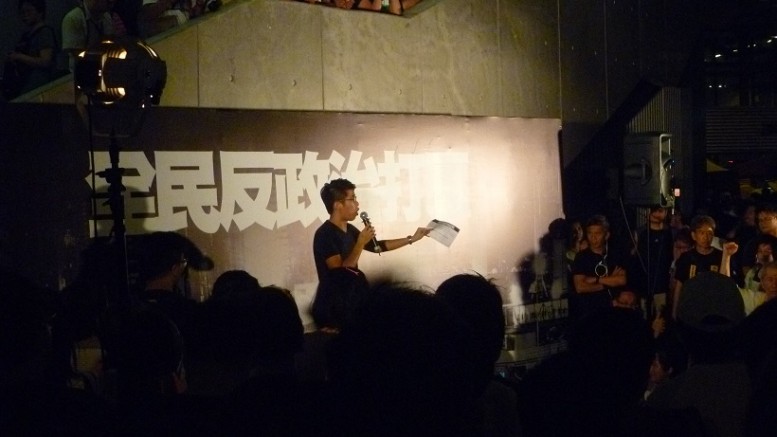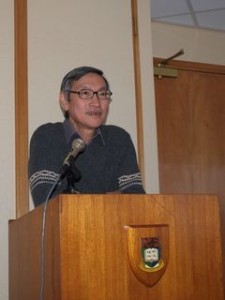By Peter Lai Hing-ling –
As the saying goes, “you reap what you sow”. If you want future generation of public servants to perform in ways that you expect, you had better make sure that they are equipped with the wherewithal to deliver, and an environment stimulating them to give of their best. That is the challenge of nurturing talents for public service.
In the old days public administration used to refer to the familiar concepts covered by the acronym PODSCORB, which was coined by Distinguished Professor Emeritus James Perry. It refers to planning, organizing, directing, staffing, coordinating, reporting and budgeting. All these are of course still relevant, but they do not begin to meet the challenges of 21st century Hong Kong. We need to face squarely eight fresh developments.
- Policy-making partnership with the community
As more and more people (especially the younger generation) are better-educated the weight and balance of knowledge in all fields have shifted away from the public sector; knowledge is now entrenched throughout the community. About the only advantage the public sector still enjoys is its control over the data necessary for informed public debate. With increasing transparency, perhaps even this advantage will not last long. Top-down, closed-door policy making will no longer do; our new generation of public servants will have to get used to policy making in partnership with the community, and thus need to acquire the skills of public engagement.
- Interact with clients and critics through cyberspace
Communications are getting ever speedier, and the spread ever wider, especially with the exponential development of social media. Increasingly, we need to interact with our clients and our critics in cyber space. Our public administrators must be trained to operate in this new era, and government procedures must be streamlined to make it possible for them to respond rapidly on their own volition.
- Genuine engagement with civil society
With the growth of civil society the old ways of consultation are no longer sufficient to satisfy the community’s demand for a greater say in managing public affairs. Active engagement with a plethora of civil society organizations, more often than not with differing (indeed sometimes opposing) stances is unavoidable. This is time- and resource-consuming, ultimately frustrating for everyone if civil society continues to be excluded from the system. Ways must be found to channel their aspirations in a constructive direction. This requires different skill sets for our public administrators – e.g. collaborative problem solving, facilitation, conflict management and negotiation. We also need a more inclusive attitude on the part of the government of the day in the way it treats its civil society counterparts.
- Give people a voice and a choice
Public expectations are getting ever higher. Increasingly choice is demanded; the public is unlikely to be satisfied with one-size-fit all solutions to their problems, and they want their voices heard. Public administrators will have to design and operate service-delivery modes that allow a greater say to service recipients. They must have the communication skills and the empathy to interact productively with their constituents, particularly the disadvantaged, so that no one need feel deprived of a voice or a choice.
Designing such service modes, and more importantly the ability to respond rapidly to unforeseen changes in demands, require new attitudes and skill sets. We need to learn from the flexibility of the private sector. In addition, “big data” may also provide new means of ascertaining the true needs of different segments of the community as well as detecting adverse developments. Our public administrators must be able to use them productively, and ethically.
- Foster inter-agency collaboration
Problems faced by governments are getting more complex, more multi-dimensional and with wider global implications. Collaborative governance is necessary to help counter the “silo” effect of a functionally organized administrative structure. Our new generation of public administrators will have to focus more and more on inter-agency collaboration, rather than just sticking to their own functional responsibilities. Networking, both within and without the public system, will be important, as will the mind-set of team work and taking responsibility for problems and ownership of solutions. Government structures and procedures must be changed to reflect this.
- Meeting expectations of the “Millenials”
Very soon the millennial generation will be entering the workforce. They are likely to have different expectations, different motivations, and respond to different management style. We need to reconsider what kind of public service career, what kind of working environment, what kind of work style and what sort of motivators will be attractive for them. We should take a fresh look at the entire philosophy underlying our civil service management system, so as to match their expectations while not ignoring the needs of an earlier generation of employees. Otherwise, we risk losing the best and the brightest.
- Strengthen ethical training of public administrators
With increasing politicization of Hong Kong there will be greater pressures on the political neutrality of public administrators. At the same time, the rewards (in whatever form) for “bending the rules”, “queering the pitch”, or perhaps “turning a blind eye”, are getting greater and in ever more sophisticated ways. Ethical training needs to be emphasized, and in this context we must also address the tricky “whistle blower” phenomenon, in particular where we stand as a community in regard to the claims of “public interest defence”.
- Enhance risk and crisis management skills
“Crisis” is now fast becoming the new normal, and public administrators need to acquire the ability to cope with the unexpected, since every mistake they make will be amplified a thousand times by a watchful media and vociferous citizenry. Risk management systems must be put in place and learnt, and crisis response skills must be drilled constantly to cope with the unexpected.
There ought to have been a ninth challenge – the demands of accountability – but since Professor Alan Lai has spoken extensively on this I shall not spend time on it.
Foster professionalism through training, research and development
Finally, I should put in a plea for the young public administrators of the future, who are lumbered with much of these responsibilities. We must take seriously our commitment to equip them with the skills to cope with a far more complex world than ours. No one is born a genius; we all stand, as Sir Issac Newton said, “on the shoulders of giants”. We used to be expected to learn on the job – i.e. thrown into the deep end to sink or swim; this will no longer do. Adequate training must be mandatory not only for the few who aspire to the top but for every responsible public manager. Public administration research and development, integrating theory and practice, overseas and local experiences, should be given priority by both the government and the academic community. Let’s face it – the days of the charlatan are numbered; professionalism is in.
This is the speech delivered by Peter Lai Hing-ling at the IRSPM (International Research Society for Public Administration) Conference jointly hosted by the City University and Polytechnic University in Hong Kong on April13. Lai is a former secretary for security and has served in pre- and post-1997 government for more than 25 years. He has actively involved in public administration education at the University of Hong Kong in the last 10 years.
Photo: VOHK pictures




Be the first to comment on "The challenges of nurturing talents for public service"